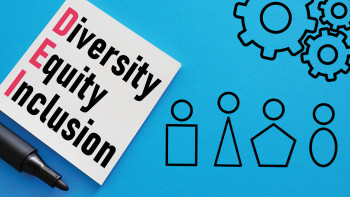
Fear is not the key either in commerce or in life
Cane vs. Compassion. Whip vs. wisdom. What drives business better? What ensures longevity, profitability and sustainability of a company? What promotes employee loyalty?
These are some of the questions troubling business biggies forever. Ever since the inception of modern business there has been no dearth of business owners and top managers betting in favour of coercive measures for growing business. Factories and shop floors have, for centuries, witnessed the worst treatment of human labour. Such inhumane treatment has found ample reflection in global literature that still brings tears to our eyes. But the feudal era, when industries were striking roots, is gradually on its way out, though the mind-set still lingers in pockets. Indepth research in industrial psychology and human resource management are bringing to light hitherto neglected and disdained systems. Business is becoming more humane. Simultaneously, it is being recognised that compassion and business success are compatible.
The trauma of the Covid pandemic is far from over even two years after it broke out. But this period saw greater focus on compassion. Nobel Peace Prize winner and foremost leader of Tibetan Buddhism, Dalai Lama, describes compassion as ‘sense of commitment, responsibility and respect towards others’. Words like compassion, grace, kindness are generally associated with the spiritual world which is deemed to be way apart from the worldly realm. It is heartening to find that the two spheres are getting closer and that purely profit-driven business is regaining sublime moorings.
The question is whether compassion and business realities can travel together and for how long. Now that Covid is on the decline in substantial parts of the world, managers are wondering whether flexibilities (delayed deadlines, relaxed goals, lowered productivity, etc) extended to employees during the pandemic’s peak be extended or recalibrated. Will the employees take advantage of the benefits offered during the Covid?
Business is becoming more humane. Simultaneously, it is being recognised that compassion and business success are compatible.However, Jane Dutton, professor at the University of Michigan’s Ross School of Business and co-author of ‘Awakening Compassion as Work’ states, “Being compassionate doesn’t mean you have to lower your standards.” The professor instead stresses upon combining compassion and accountability. In most such discussions, we lose sight of the hit which the mental health of the staff has taken because of the unprecedented Covid pandemic. They have lost faith in not only themselves but even in the best of business managements, governments, medical facilities and local administrations. After all, the pandemic has brought down everybody to their knees. Even as the deadly disease continues to rage in some parts of the world, vaccine politics has dealt a lethal blow to the underprivileged and the marginalised. Yet, vaccine pharma giants are raking in obscene profits. The tragic scenario is making the common man all the more vulnerable. Emotional health has taken a hard knock as uncertainty looms large in front of most of us. It’s time for businesses to practice compassion as best as they can. So what should businesses do? First, change your thought processes. You extended flexibility to your employees and executives, not lenience, during the pandemic. Don’t look down upon your team; do not be condescending. Top management should not be driven by stereotypes and prejudices. There is no direct correlation between the management’s tough measures and superior performance by the staff. Research shows that threatening behaviour stifles innovation as employees continue to focus only on what they already know. Jacob Hirsh, Associate Professor at the University of Toronto, has been quoted thus: “At a purely instrumental strategic level, you’re not going to get the results you want if you add stress to people’s lives.” A manager should ensure a psychologically safe workplace for his team. Compassion propels employees to give back more to the organisation. Fear does not work as the key most of the time. All this is not to say that underperformance is not an issue. But it needs to be treated differently in these tumultuous times. Understand and identify the issues being faced by the underperformer. Meet them individually or in groups but with an open mind. You will be able to know what is hurting them and how they can be motivated to get back on the track. But that will happen only if you are driven by compassion.
Published Date: December 14, 2021, 12:00 am
Post Comment
E-Magazine
RELATED Business Sutra





